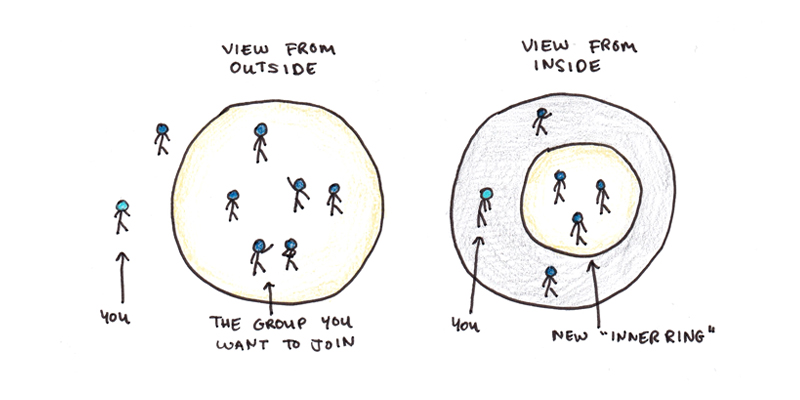I once met with a successful academic and author. He told me that he didn’t understand most of his peers.
Getting tenure at a university is a lot of work. You need to produce a lot of the right kind of intellectual output to get recognized. But after that, you have total freedom to pursue whatever work you think is true and important.
He commented that many of his colleagues waste this opportunity. They continue to churn out the same boring, citation-grubbing papers that made their early career. They have academic freedom and the job security to take intellectual risks, but instead, they play it safe.
What he strives for, in contrast, is to use his freedom to do the work he thinks is vital. Whether this meets the intellectual fads of his field doesn’t matter.
Was he right about the other academics? Who knows. I’m too far removed to judge. Maybe those people he criticized were doing work they thought was essential, even if my acquaintance disagrees.
What struck me about this conversation was that it flipped on its head a common assumption about success. For many, the goal of success is to be rich and respected. That’s why you work hard. For this person, the goal is to do the work he thinks is important. Doing the work is the end.
C.S. Lewis and the “Inner Ring”
I thought about this conversation after I stumbled upon the text of C. S. Lewis’s famous lecture, “The Inner Ring.”
In the lecture, Lewis warns his audience against the drive to be within the inner ring—that select group of people that seem cool, successful or famous. It’s a fundamental impulse of human beings to want to be included, to feel like they’ve “made it.”
Yet, Lewis noted that within every inner ring is a ring yet more inner. Suppose you get a master’s degree because you feel like people don’t take you seriously because you don’t have credentials. But you still are looked down upon by people who have a Ph.D. So you get your doctorate. But then you find out that the Ph.D. isn’t what matters but where you went to school, and whether you got tenure, and so on.

The problem isn’t that inner rings exist. Lewis correctly notes they’re essential for society’s function. What’s dangerous is the desire to always burrow deeper inside them. There is no final, inner ring where one can have refuge. Like the layers of an onion, you peel them away until there is nothing left.
Craft as the Antidote to Status Seeking
What is the solution? How does one avoid becoming, in Lewis’s words, an “inner ringer”?
Lewis argues that the answer is craft. If you care about your work—for its own sake—you can transcend the petty status-seeking that surrounds you.
Occasionally, I’ve seen the mantra of excellence become a kind of sour grapes. Others don’t respect your work, perhaps with good reason, so instead of considering this criticism, you claim you’re doing it just for yourself. Adhering to an internal standard, you reject the judgement of others.
But this isn’t quite right. The only way to counter a strong, instinctual urge like status-seeking is to override it with a more compelling one. Having soft and idiosyncratic standards for your work doesn’t insulate you from the desire to be liked—it’s just a form of self-deception.
Instead, those who manage to get wholly absorbed in their craft do so because they have higher standards for their work than anyone else expects. Acclaim and fame fail to motivate because that’s too easy, not too hard. Improvement according to an internal sense of quality matters more than whether some inner ring agrees.
This pursuit of craft can be stressful. It can become a kind of caustic perfectionism, where none of your work (successful or not) meets the aspirations you have for it. It’s certainly not a wholly positive force. Still, going deep within your work is a surer route to satisfaction than peeling the onion of social hierarchy.
You may never be conventionally successful. You may never get the respect you feel you’re due or the rewards you deserve. But if you can focus on doing the work that matters to you, you’ll be inside the only ring that counts.


 I'm a Wall Street Journal bestselling author, podcast host, computer programmer and an avid reader. Since 2006, I've published weekly essays on this website to help people like you learn and think better. My work has been featured in The New York Times, BBC, TEDx, Pocket, Business Insider and more. I don't promise I have all the answers, just a place to start.
I'm a Wall Street Journal bestselling author, podcast host, computer programmer and an avid reader. Since 2006, I've published weekly essays on this website to help people like you learn and think better. My work has been featured in The New York Times, BBC, TEDx, Pocket, Business Insider and more. I don't promise I have all the answers, just a place to start.